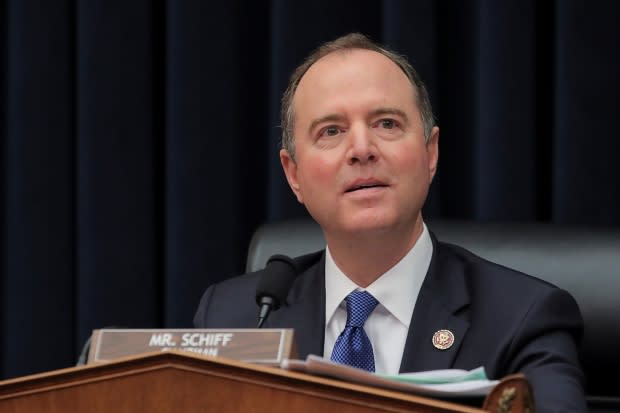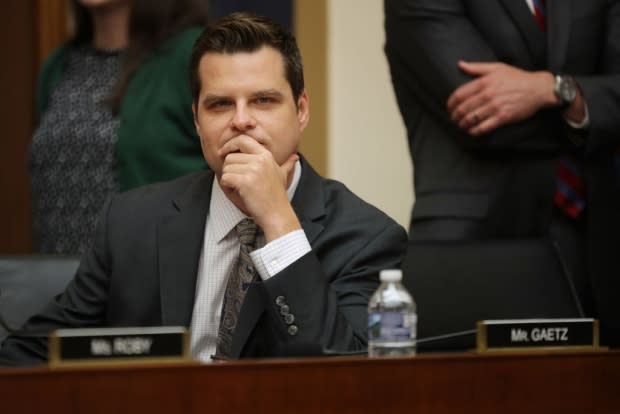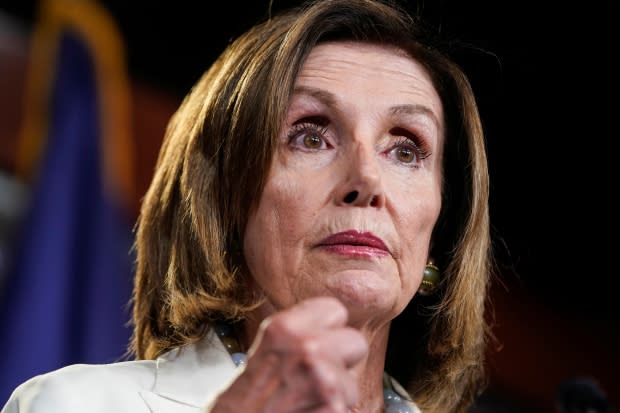How Robert Mueller's day of answering questions on Capitol Hill might unfold

Neither Republicans nor Democrats are expecting bombshell revelations when they square off with Robert Mueller on Wednesday in five hours of congressional hearings on the Russia investigation, but both hope to extract enough from the famously tight-lipped former special counsel to advance their respective agendas.
Mueller, 74, has made it clear he won't go beyond what he has already said in the 448-page report on Russian interference in the 2016 U.S. election and alleged ties between Russia and the presidential campaign of Donald Trump.
"The report is my testimony," he said in a nine-minute press conference in May that was his only public comment on the 22-month-long investigation he and a team of lawyers, FBI agents, accountants and intelligence analysts conducted.
It's unlikely he'll stray from that commitment, but that doesn't mean the two sides won't try to bend him to their will.
For the Democrats — who control the House of Representatives — it's an opportunity to refocus Americans' attention on some of the most damaging details in the report, which came out in April, with a view to influencing public opinion about Trump ahead of the 2020 election.

Democrats hope hearings will bring life to 'dry' text
Mueller concluded there was no evidence that anyone in Trump's campaign conspired with the Russians, but the Democrats say his revelations about the extent of contact between Trump associates and those working to undermine his opponent, Hillary Clinton, are damning enough — they just haven't registered in the public consciousness.
The paperback version of the report is still at the top of the New York Times bestseller list, but polls suggest few Americans — including many in Congress — have read it.
Watch the Mueller hearing live starting at 8:30 a.m. ET Wednesday at CBCNews.ca.
"It's a pretty dry, prosecutorial work product," Adam Schiff, the Democratic chairman of the House permanent select committee on intelligence, said on CBS's Face the Nation. "We want Bob Mueller to bring it to life."

Schiff's committee will be the second to question Mueller and will focus on the alleged ties between the Trump campaign and Russia while the judiciary committee will zero in on Volume 2 of the report, which covers allegations of obstruction of justice.
With each member getting five minutes and more than 60 members between the two committees, the conditions are not ideal for a thorough examination of the facts and lend themselves more to partisan grandstanding.
"It is extremely difficult to sustain some type of probing line of questioning," said Paul McNulty, who attended dozens of judiciary committee hearings while serving as deputy attorney general in the George W. Bush administration and as a Republican aide during the impeachment hearings of former president Bill Clinton.
On Monday, the Department of Justice issued guidelines for Mueller's appearance, asking him to not go beyond the scope of the report, not mention anything pertaining to redacted sections and not discuss individuals who haven't been charged. As a former employee of the department, Mueller is not technically bound by those limits but is unlikely to stray beyond them.
Mueller made a last-minute request Tuesday afternoon to have longtime aide Aaron Zebley with him during the justice committee portion to provide assistance but not be questioned. Zebley was one of two former Mueller deputies the Justice Department had urged earlier this month not to testify before Congress.
Republicans aim to expose bias in investigation
Mueller arrives on Capitol Hill with an unscathed reputation as a meticulous, apolitical investigator, decorated Vietnam War veteran and career civil servant who has worked under Republican and Democrat administrations.
That means Republicans have to walk a fine line between undermining the credibility of the investigation and impugning the former FBI director's character.

"We have to do more than just question Mueller. We have to expose his biased investigation," Republican Rep. Matt Gaetz, who sits on the judiciary committee, said on Fox News Monday.
He and his fellow Republicans are sure to highlight the role of fired FBI agent Peter Strzok, who exchanged text messages with a fellow agent that betrayed their political biases against Trump.
They will press Mueller to explain why Strzok was allowed to work on the FBI's Russia investigation, which began in July 2016, when he had also been the lead agent on the investigation into Clinton's use of a private email server.
"The goal will just be to try to create the impression that this is a partisan fight," said John Nelson, a legal fellow at Just Security, an online forum for legal analysis based at the Reiss Center on Law and Security at New York University School of Law.
Steele dossier likely to figure in Republican questioning
Another area where Republicans see Mueller as vulnerable is the Steele dossier, the unverified trove of documents from a former U.K. spy detailing the Trump campaign's contacts with Russians and salacious allegations about Trump's personal life.
Their intent here will be to get Mueller to admit that the FBI probe he took over had relied on the unsubstantiated dossier, commissioned as opposition research by the Clinton campaign, and was therefore tainted from the outset.
Republicans have also said they want Mueller to lay out exactly when his investigation shifted from collusion to obstruction of justice and why — if he had concluded there was no co-ordination between the campaign and Russia — did he not announce that earlier and clear the president.
"It's a legitimate overall complaint: the collusion investigation going well beyond the time when you knew there wasn't any because you were looking for obstruction of justice," said D.C.-based attorney Sol Wisenberg, who was the deputy to independent counsel Kenneth Starr during the Clinton impeachment.
Democrats, on the other hand, may try to get Mueller to say his investigation was an obstruction probe from the start since part of what prompted the appointment of the special counsel was Trump's abrupt firing of then-FBI director James Comey in May 2017.
"Both sides can make hay with that," Wisenberg said.

Both parties want answer on why no exoneration
For the Democrats, getting Mueller to revisit at least some of the 11 instances of possible obstruction he investigated could serve to highlight the president's conduct and shift focus away from the fact he wasn't found guilty of a crime. That includes the Comey firing and multiple efforts to remove the special counsel, suppress relevant information and dissuade witnesses from co-operating.

Mueller is unlikely to walk away without having to explain one of the most quoted lines of the report: "While this report does not conclude that the president committed a crime, it also does not exonerate him. "
"That could be another line of questioning from the Republicans because there has been some criticism of Muller's language in his report, which appears to be saying that the president is guilty and needs to prove his innocence." McNulty said.
Impeachment not on the horizon
Nelson says Democrats may try to get around the fact that Mueller felt Justice Department guidelines prevented him from charging the president with a crime by asking whether the department had prosecuted cases of such conduct in the past.
They might also ask whether the fact Mueller's team continued investigating the president in order to, as Mueller said, "preserve the evidence" was done with a view to prosecuting Trump in the future.
Mueller said in his May press conference that "the constitution requires a process other than the criminal justice system to formally accuse a sitting president of wrongdoing," presumably meaning impeachment, but it's unclear whether Wednesday's hearings will advance the Democrats' case for that process.
It doesn't have broad support within the party or among voters, so Mueller's appearance would have to move the needle pretty dramatically to make a difference.
"In the Clinton impeachment matter, what we saw was that the public opinion is really critical as to whether or not the committee will ultimately be successful if it wants to move forward," said McNulty, who is currently the president of Grove City College in Pennsylvania.

Focus on what's missing, says expert
Nelson said Democrats could gain an advantage by homing in on some of the questions the report leaves unanswered.
"If you're looking for a really blatant kind of connection between the Trump campaign and Russia, I think the two good places to look would be Roger Stone and Paul Manafort."
Stone, a longtime Trump adviser accused of co-ordinating with WikiLeaks to release hacked Clinton campaign emails obtained by Russia, is one of the 34 people charged during Mueller's investigation and has pleaded not guilty on seven counts of obstruction, witness tampering and lying to Congress.

Democrats could press Mueller on why he didn't wait for the outcome of that trial before issuing his report given that the hack was one of the things he was investigating.
In the case of Manafort, Trump's former campaign chair, Mueller's investigators found he had passed on internal polling data to Konstantin Kilimnik, a Russian-Ukrainian dual citizen with suspected ties to Russian intelligence, but were unable to determine why.
The question to Mueller, says Nelson, could be: "Do you think the reason that you didn't find out why was because they sufficiently obstructed justice?"
A central question that has stumped lawyers and laypeople alike is: Why didn't Mueller use the courts to compel Trump to be interviewed by investigators and accepted written testimony instead?
Wisenberg says it's not likely that or any other question lawmakers throw at Mueller will put the stonefaced special counsel off his game.
"I don't think Mueller is fazed by much."
WATCH | 'The report is my testimony': Robert Mueller speaks about his findings in May:

